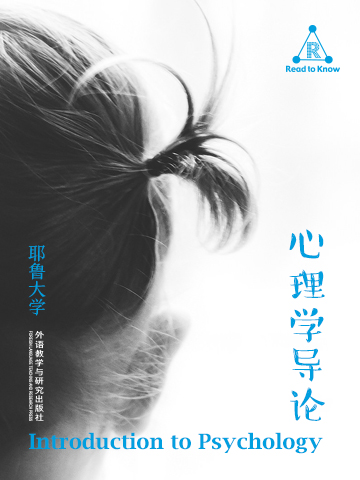感知、爱、欲望、饥饿、艺术、小说以及梦……你想知道的一切!
It is all about perception, love, desire, hunger, art, dream...everything you want to know!
本门课程从科学的角度探讨了感知、爱、欲望、饥饿、艺术等与日常生活息息相关的话题,分析了儿童在这些方面的心理是如何成长的,它们在人与人之间又是如何不同的,又是怎么因为疾病和损伤而被影响,让读者对这些领域有科学而系统的认识,对人的心理和身体之间的关系有更深入的了解。
This course explores topics such as perception, communication, learning, memory, decision-making, religion, persuasion, love, lust, hunger, art, fiction, and dreams. We will look at how these aspects of the mind develop in children, how they differ across people, how they are wired-up in the brain, and how they break down due to illness and injury.
课程很好,教授讲的很具体也很清晰。
一直对心理学感兴趣,终于找到这门有关心理学的课程啦,要好好学习研究一下!
从孩子的角度看待一些问题,和从成人的角度看待这些问题真的有很大的不同!
同一个人在孩童时期和成人时期思想是不同的,不同的人的思想也是不同的,人是复杂的,很大程度上是因为我们的思想是复杂的。
这个教授讲的课真的是好幽默,还以为学心理学会枯燥呢,没想到导论课就被他讲话的风格吸引了。这种学校还真是尽心尽责,甚至连大学的校长都要在情人节被请来讲关于爱情的传说。
- 第1讲 课程介绍
- 第2讲 基础:这是你的大脑
- 第3讲 基础:弗洛伊德
- 第4讲 基础:斯金纳
- 第5讲 婴儿是如何思考的:思维的发展历程
- 第6讲 我们如何交流?思想,语言和手语
- 第7讲 当前意识;过去意识;语言;愿景与记忆
- 第8讲 意识的呈现:意识到过去、视觉记忆
- 第9讲 进化、情感、和理性;爱
- 第10讲 演化、情感、理性之进化的合理性
- 第11讲 演化、情感、理性之情感第一部分
- 第12讲 演化、情感、理性之情感,第二部分
- 第13讲 人们为什么会有差异?
- 第14讲 什么激发我们:性
- 第15讲 一个人在这个世界上的人;道德
- 第16讲 一个人在这个世界上的人;自我和其它 第一部分
- 第17讲 一个人在这个世界上的人;自我和其它 第二部分
- 第18讲 当事情不顺的时候会发生什么事情:精神病 第一部分
- 第19讲 当事情不顺的时候会发生什么事情:精神病 第二部分
- 第20讲 最好的生活;幸福
- Lecture 1 Introduction
- Lecture 2 Foundations: This Is Your Brain
- Lecture 3 Foundations: Freud
- Lecture 4 Foundations: Skinner
- Lecture 5 What Is It Like to Be a Baby: The Development of Thought
- Lecture 6 How Do We Communicate?: Language in the Brain, Mouth and the Hands
- Lecture 7 Conscious of the Present; Conscious of the Past: Language (cont.); Vision and Memory
- Lecture 8 Conscious of the Present; Conscious of the Past: Vision and Memory (cont.)
- Lecture 9 Evolution, Emotion, and Reason: Love (Guest Lecture by Professor Peter Salovey)
- Lecture 10 Evolution, Emotion, and Reason: Evolution and Rationality
- Lecture 11 Evolution, Emotion, and Reason: Emotions, Part I
- Lecture 12 Evolution, Emotion, and Reason: Emotions, Part II
- Lecture 13 Why Are People Different?: Differences
- Lecture 14 What Motivates Us: Sex
- Lecture 15 A Person in the World of People: Morality
- Lecture 16 A Person in the World of People: Self and Other, Part I
- Lecture 17 A Person in the World of People: Self and Other, Part II; Some Mysteries: Sleep, Dreams, and Laughter
- Lecture 18 What Happens When Things Go Wrong: Mental Illness, Part I (Guest Lecture by Professor Susan Nolen-Hoeksema)
- Lecture 19 What Happens When Things Go Wrong: Mental Illness, Part II
- Lecture 20 The Good Life: Happiness























 京公网安备 11010802032529号
京公网安备 11010802032529号
笔记加载中...